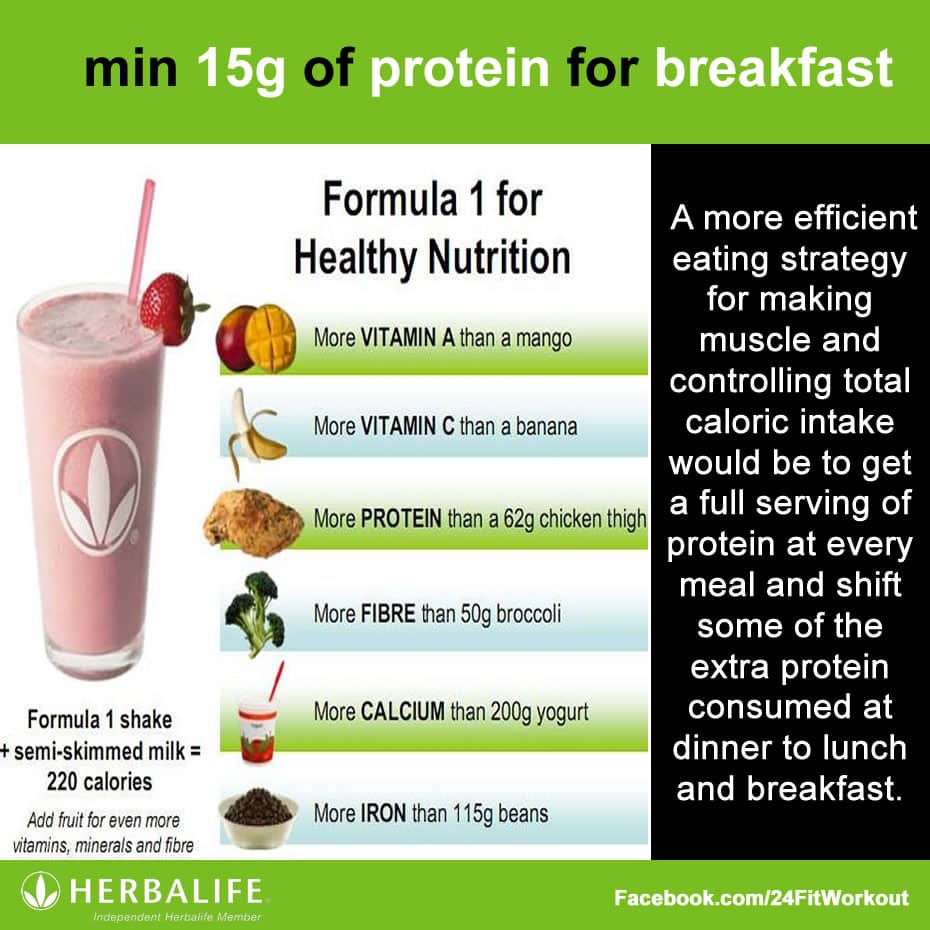According to research from a team of scientists led by muscle metabolism expert Doug Paddon-Jones of the University of Texas Medical Branch at Galveston. This research shows that the typical cereal or carbohydrate-dominated breakfast, a sandwich or salad at lunch and overly large serving of meat/protein for dinner may not provide the best metabolic environment to promote healthy aging and maintenance of muscle size and strength.

The study, in the Journal of Nutrition, shows that the potential for muscle growth is less than optimal when protein consumption is skewed toward the evening meal instead of being evenly distributed throughout the day.
Age-related conditions such as osteoporosis (bone weakening) and sarcopenia (muscle wasting) do not develop all of a sudden. Rather they are insidious processes precipitated by suboptimal lifestyle practices, such as diet and exercise, in early middle age, the study states.
The study’s results were obtained by measuring muscle protein synthesis rates in healthy adults who consumed two similar diets that differed in protein distribution throughout the day. Using blood samples and thigh muscle biopsies, the researchers then determined the subjects’ muscle protein synthesis rates over a 24-hour period.
When study volunteers consumed the evenly distributed protein meals, their 24-hour muscle protein synthesis was 25 percent greater than subjects who ate according to the skewed protein distribution pattern. This result was not altered by several days of habituation to either protein distribution pattern.
The results of the study, Paddon-Jones points out, seem to show that a more effective pattern of protein consumption is likely to differ dramatically from many Americans’ daily eating habits.
“Usually, we eat very little protein at breakfast, a bit more at lunch and then consume a large amount at night. When was the last time you had just 4 ounces of anything during dinner at a restaurant?” Paddon-Jones said. “So we’re not taking enough protein on board for efficient muscle building and repair during the day, and at night we’re often taking in more than we can use. We run the risk of having this excess oxidized and ending up as glucose or fat.”
A more efficient eating strategy for making muscle and controlling total caloric intake would be to shift some of the extra protein consumed at dinner to lunch and breakfast.
Research – http://www.ncbi.nlm.nih.gov/pmc/articles/PMC4018950/
Why Protein?
Protein based foods help build muscle, & repair muscle tissue after exercise. The body uses protein to manufacture enzymes & hormones to speed up important chemical processes. Your immune system needs protein to make antibodies which are specialized proteins that help your body defend against foreign invaders.
Personalised Programme
Aim for a minimum of 15g protein for breakfast, contact us for a personalised protein prescription based on your activity levels and your resting metabolic rate which impacts your total daily calorie intake.
And strength training 3 times a week for 30mins to increase your lean muscle mass, and raises your metabolic rate to assist with weight management. One option is the 24 Fit Workout using resistance bands and dumbbells.
Delicious Herbalife Formula 1 healthy meals provides an excellent balance of high quality protein from milk and plant based protein, essential micronutrients and added botanicals and herbs.
Lose Weight Without Losing lean Muscle
To lose weight you need to create a deficit in calories from your active metabolic rate BUT WITHOUT LOSING LEAN MUSCLE, otherwise you will be in worse situation than when you started. So your focus needs to me more than just reducing calories you also need to maintain good levels of macro nutrients such as protein and micro nutrients, otherwise you may find you are never satisfied after eating, or still lack energy, making you reach for products such as sugary drinks, biscuits or other unhealthy snacks. These foods can cause an energy spike (rise in blood sugar) followed by an energy crash (fall in blood sugar), which leads to further fatigue and hunger. Skipping meals, especially breakfast may seem like a good way to cut calories, but it can leave you feeling tired and hungry long before your next meal.

